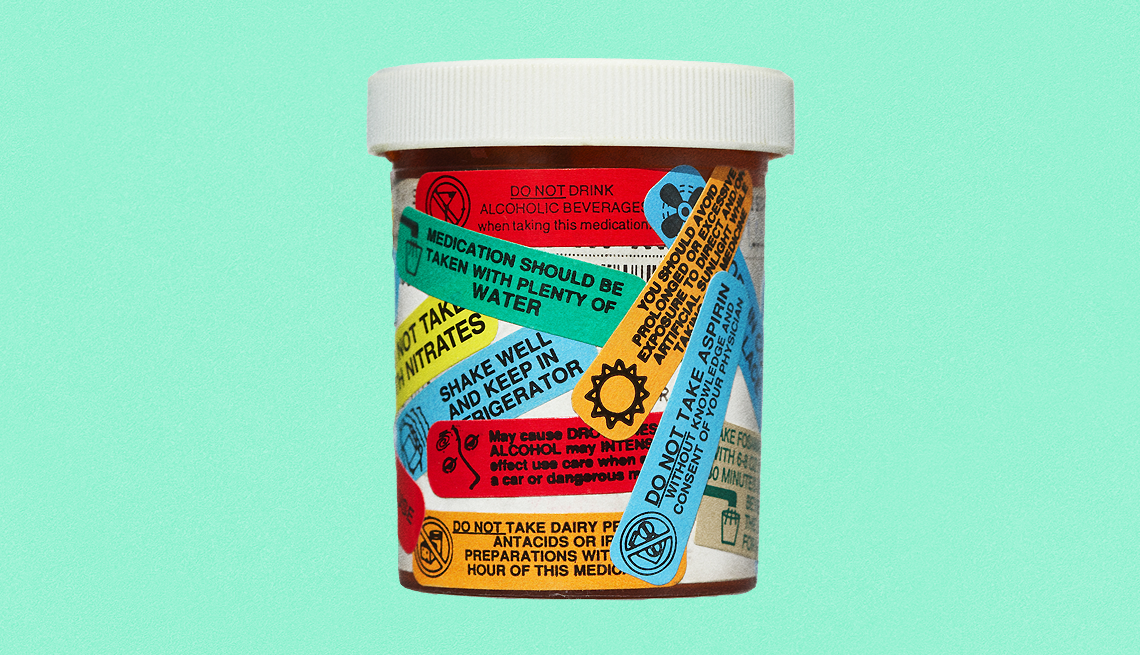Taking even one medication correctly and on time each day can be a challenge. In fact, studies show that nearly half of patients don’t follow medication instructions properly.
The challenge is even greater for older adults, who often take multiple medications at the same time.
“These treatments are more complicated,” says David Bates, M.D., director of the Center for Patient Safety Research and Practice at Brigham and Women’s Hospital and professor of medicine at Harvard Medical School. “The more medications you take, the more confusing it becomes.”
With each medication having its own dosage, timing, and instructions, keeping track of it all can be a challenge, so it’s no wonder that medication errors happen: people forget to take a dose, take it at the wrong time, or misunderstand the instructions.
Medication errors can cause real harm to patients, leading to poor outcomes, hospitalization and, in severe cases, death. Research shows that about 15 percent of older adults who see a doctor or hospital each year have a medication problem, but in about half of those cases, the problem was preventable. AARP asked experts to identify some of the ways people are likely to misuse medications and how to prevent each problem.
1. Mistake: Missing one or more doses
One of the most common medication errors is skipping one or more doses, whether it’s a deliberate strategy to save money or simply because you forget. A 2021 survey found that 8% of American adults, or about 9.2 million people, don’t take their medications as prescribed because of the cost.
While missing a dose or two may not seem like a big deal, Bates says it can have serious consequences: If you have diabetes, for example, not taking your insulin can lead to life-threatening high blood sugar levels.
To stay on top of your medications, set reminders on your phone, use a medication organizer, or get help from friends and family.
If cost is an issue, talk to your pharmacist about your options, says Chad Wortz, a geriatric pharmacist and CEO of the American Association of Consultant Pharmacists. Pharmacists can look for discounts or talk to your doctor to see if they can prescribe a cheaper medication.
“Especially with brand-name drugs, the manufacturer may be able to offer you options on how to purchase them,” Wurtz says. “There are also many assistance programs available.”
2. Mistake: I forgot to take my medicine and took two tablets.
Have you ever forgotten to take a pill and then taken an extra pill just to be sure? Taking two pills of a medicine can be dangerous, says Hedva Barenholtz Levy, a geriatric pharmacist and author of the book “The Dangers of Doubling Your Pills.” It could be because of your medication.
For example, taking too much of a blood thinner can cause bleeding, and taking too much of a beta-blocker can dangerously lower your blood pressure and make you dizzy or faint.
“If you’re not sure, don’t take it,” Barenholtz-Levy says, “and talk to your pharmacist before taking the second pill or stop taking it for the day.”
If you know you’ve missed a dose of a medication that you take two or three times a day, you should also consider how close it is to your next dose. “If you realize you missed a dose within two hours, take it as soon as you remember,” says Barenholtz Levy. “If it’s almost time for your next dose, skip the missed dose and take your next dose at the time you were supposed to take it.”
To make things easier, use a pill box that has a compartment for each day. Some “smart” pill boxes even have alarms or connect to a smartphone app to send you reminders. Another option, some pharmacies will put your medications in blister packs or pouches that you can label by day and time, making it easier to manage your medications.
3. Mistake: Rushing out of the pharmacy
When you pick up your prescription at the pharmacy, you might be tempted to just pick it up and head out.
But pharmacists can also give patients the wrong medication or the wrong dosage, which can have disastrous consequences. Dispensing error More than two out of every 100 medicines sold at local pharmacies are affected.
So no matter how many people are behind you in line, take a moment to make sure you’ve received the right medication in the dosage you expected, says pharmacist Michael Gaunt, senior manager of the Error Reporting Program at the Institute for Safe Drug Practices. “Patients may feel pressured at the counter, but take the time to open the bag and make sure it’s the right medication. Make sure it has your name on the label and on the bottle, and open the bottle at the counter to see if it looks the same. If it’s not, ask questions.”
It’s also a good time to ask questions about any medications you’re taking, any potential interactions, and how and when you should take them, Gant says.
